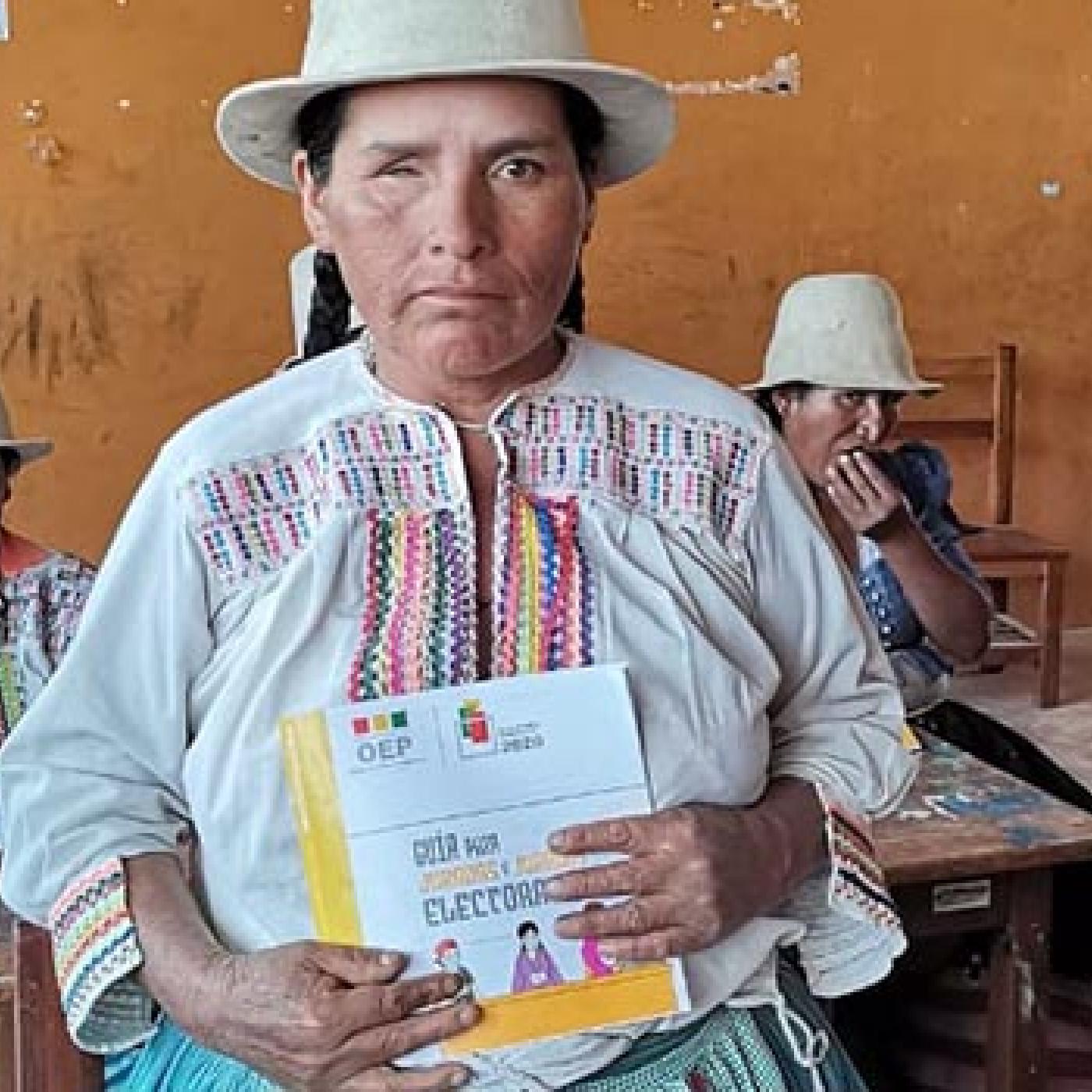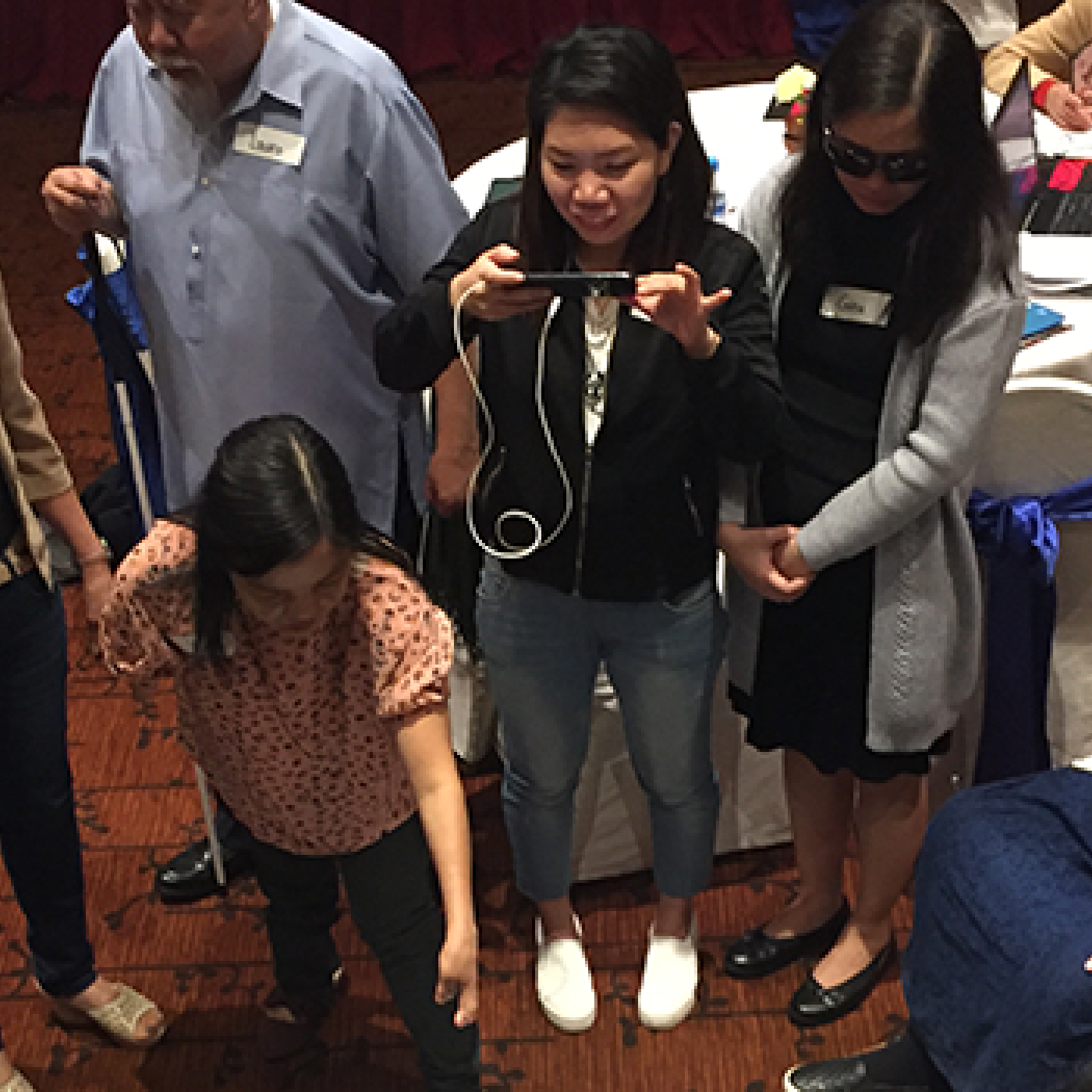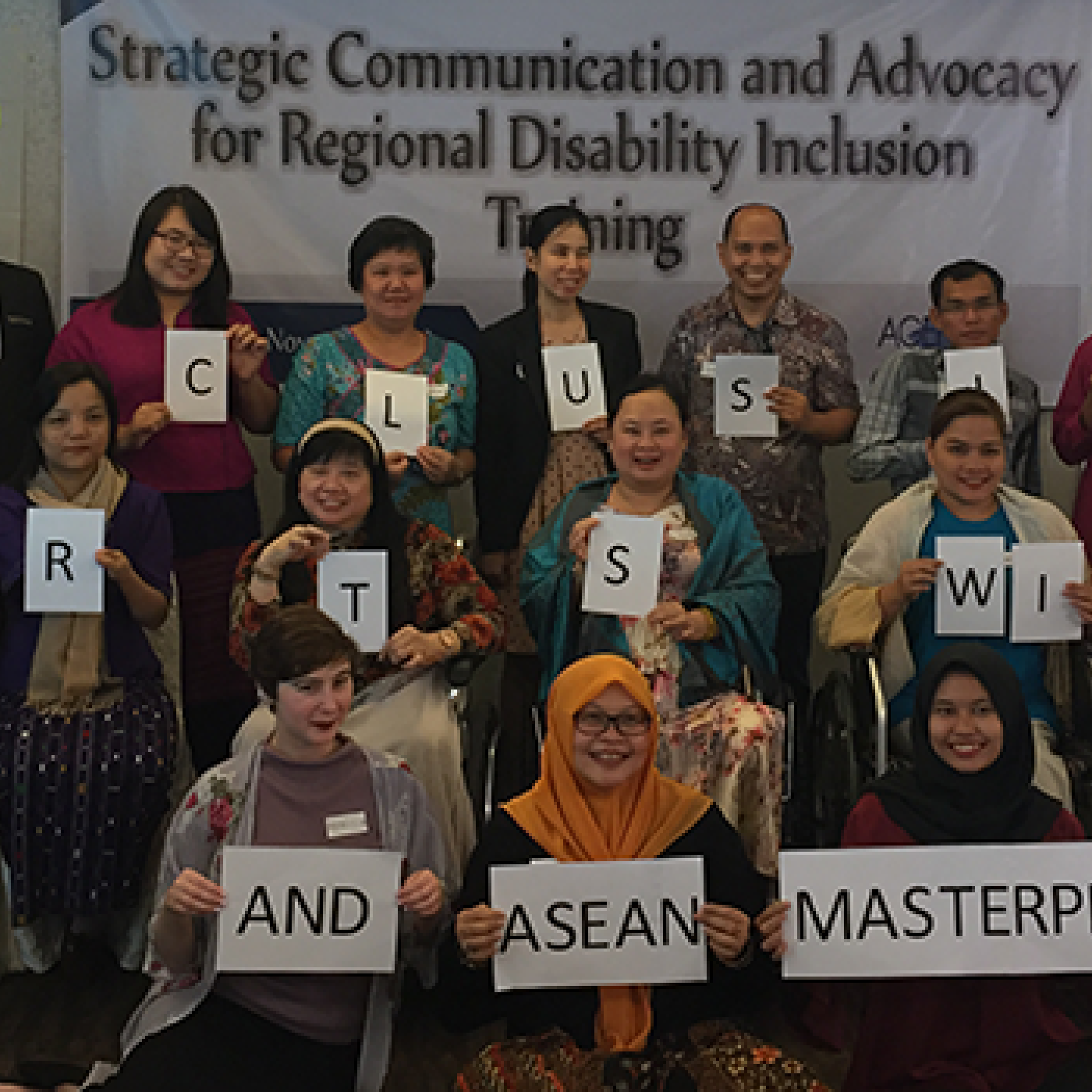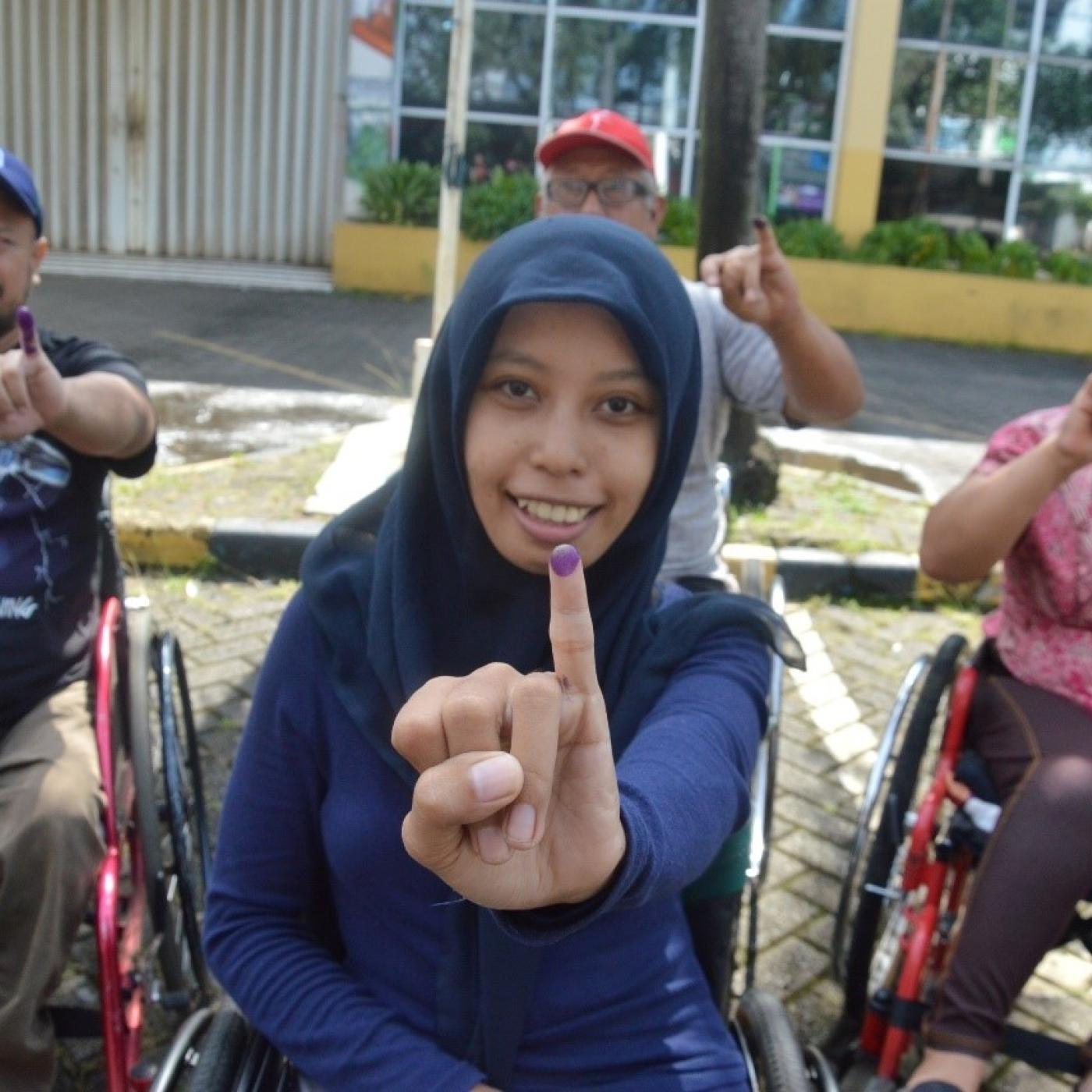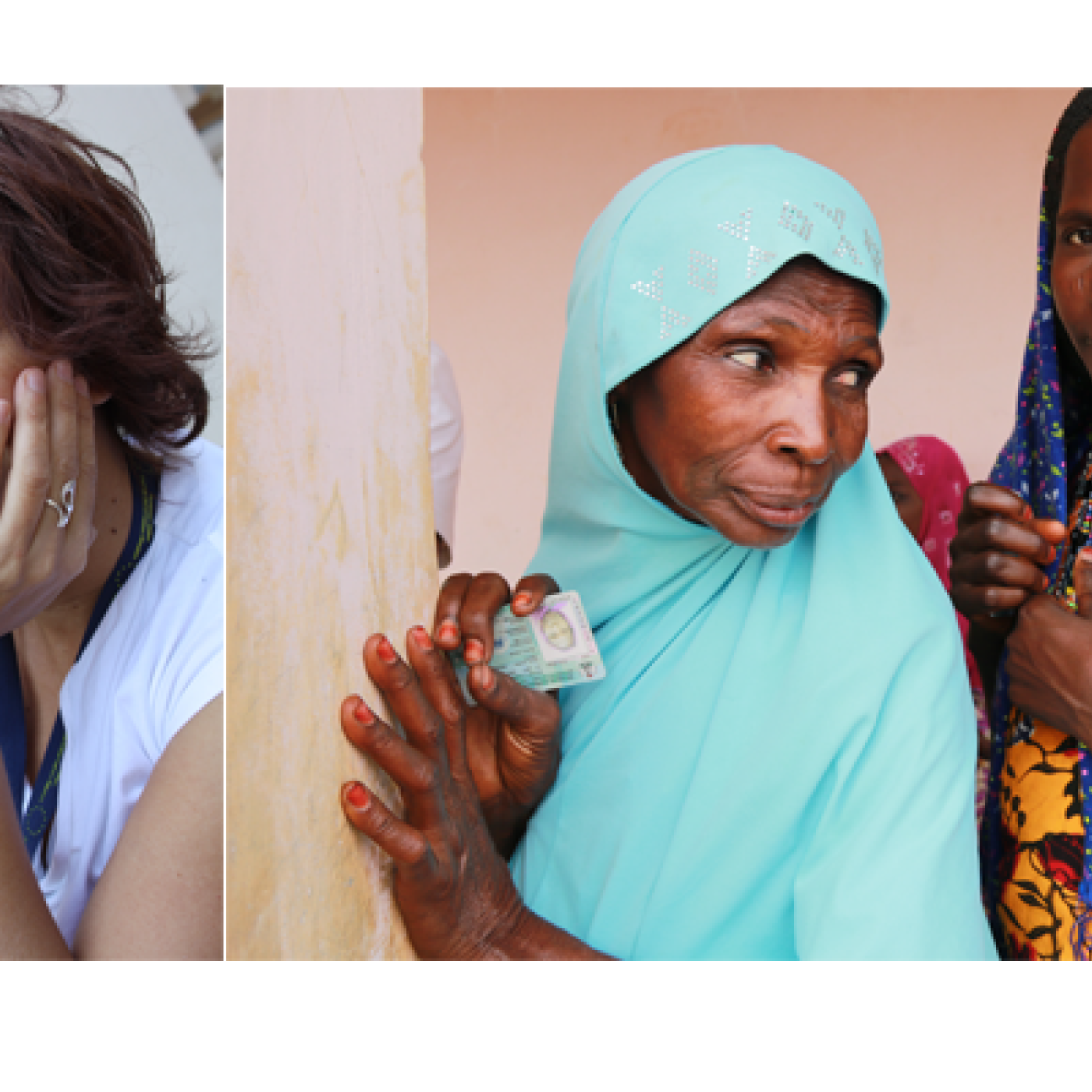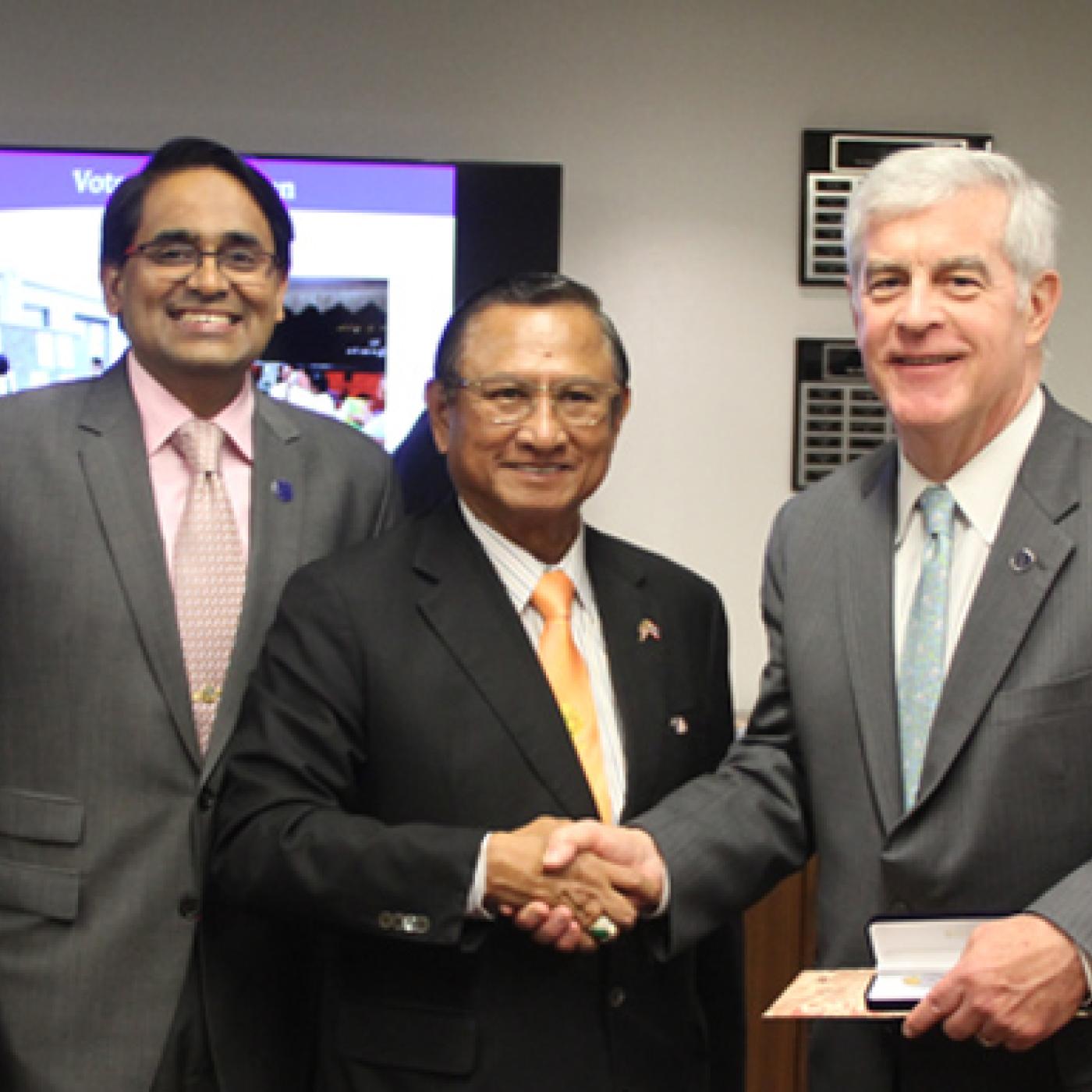Tools & Resources
Filter by
Type
Publication date
Language
Type
Publication date
Language
News & Updates
Feature
IFES Celebrates International Day of the World’s Indigenous Peoples
One of the objectives of IFES' strategic plan is to support all people to safely participate in civic and political life on an equal basis – this objective specifically mentions and prioritizes inclusion of Indigenous Peoples.
Election FAQ
Elections in Bolivia: 2019 General Elections
On October 20, Bolivians went to the polls to elect a president and vice president, 130 deputies and 36 senators. To help you understand this important electoral process, IFES provides Frequently Asked Questions on Elections in Bolivia: 2019 General Elections.
News & Updates
Feature
Advocates Trained to Evaluate Implementation of Regional Disability Rights Policy Document
On January 30, IFES and the General Election Network for Disability Access trained advocates from disabled people’s organizations and election-focused civil society organizations on the reporting process for a new regional policy document.
News & Updates
Feature
Organizations Trained to Advocate for Southeast Asia Regional Disability Rights Plan
On November 1-4, 2018, the General Election Network for Disability Access organized a communications and advocacy training of disabled people’s organizations and civil society organizations from eight countries in the Association of Southeast Asian Nations Community.
News & Updates
Feature
Advancing Disability Rights in Southeast Asia through Regional Network of Advocates
In 2011, IFES established the General Election Network for Disability Access (AGENDA) across Southeast Asia. A creative partnership between disabled persons’ organizations (DPOs) and election-focused civil society organizations, AGENDA serves as a forum to improve access to political and electoral opportunities for persons with disabilities by increasing public awareness and elevating advocacy efforts that call for change.
News & Updates
Feature
2015 IFES Photo Contest Winner
An image of two Fulani women patiently queueing to register to vote in Nigeria’s 2015 historic elections received top honors in IFES' 2015 Photography Contest.
Election FAQ
Elections in Thailand: 2016 Constitutional Referendum
On August 7, Thai citizens will vote on a new constitution and a proposal allowing an appointed 250-member Senate to join the House of Representatives in selecting a Prime Minister. In May 2014, Thailand’s military took control of the government and enacted an interim constitution to replace the 2007 constitution.
News & Updates
Feature
The Election Commission of Thailand Meets with IFES
The International Foundation for Electoral Systems (IFES) hosted a delegation from Thailand led by Chairman of the Election Commission of Thailand (ECT), Mr. Supachai Somcharoen. IFES President and CEO Bill Sweeney and Regional Director for Asia-Pacific Vasu Mohan received the delegation and provided a briefing on IFES' work around the world supporting citizens’ rights to participate in free and fair elections.
News & Updates
Feature
Empowering Tomorrow through Youth Engagement
IFES works to empower youth around the world by hosting democracy-focused camps, events, and activities. By educating young people about democracy, we enable them to express themselves and have a voice in their communities.
News & Updates
Feature
2014 Thailand General Elections
On February 2, 2014, the world watched Thailand’s general election unfold within a tenuous political environment. One-tenth of polling stations throughout Thailand were closed on Election Day, and 28 of 375 constituencies had no candidates due to anti-election demonstrations.
Thailand is now in a position where it cannot currently produce enough legislators to seat the House of Representatives. Legal challenge by the opposition over the validity of the election is a possibility, as well as holding by-elections to fill the remaining seats.
The task of the Election Commission of Thailand under these circumstances is a formidable challenge. Never has the independence, neutrality and competence of commission been more important.
Thailand is now in a position where it cannot currently produce enough legislators to seat the House of Representatives. Legal challenge by the opposition over the validity of the election is a possibility, as well as holding by-elections to fill the remaining seats.
The task of the Election Commission of Thailand under these circumstances is a formidable challenge. Never has the independence, neutrality and competence of commission been more important.




